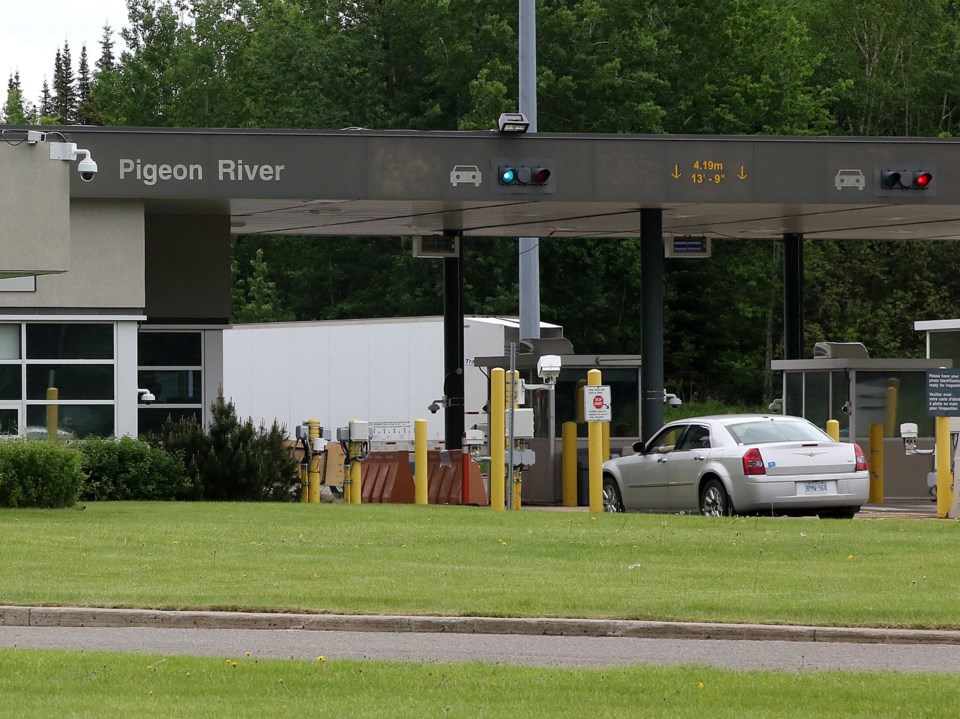THUNDER BAY – Canada will open its border to fully vaccinated American tourists on Aug. 9 – though the United States has yet to say whether or not they’ll reciprocate at that time.
Non-essential, fully vaccinated international travelers, who meet certain requirements, will be allowed to enter Canada as of Sept. 7.
Canada is also reducing restrictions on fully vaccinated Canadian citizens, permanent residents and those otherwise permitted to enter the country.
Partially or non-vaccinated non-essential international travelers will not be allowed to cross the border, while Canadians who have had one or no shots will face a 14-day quarantine. Travelers flying into the country will no longer have to stay at a government approved hotel for three days.
Health Minister Patty Hajdu said the news has been a long time coming, but the country had to be cautious in its approach, pointing out that 80 per cent of eligible Canadians have now received at least one COVID-19 vaccination and more than half the eligible population has had both doses.
That’s still short of the 75 per cent fully vaccinated total Prime Minister Justin Trudeau and other public health officials had touted earlier this year as the threshold to reopen the border, but the numbers are expected to climb over the next 21 days.
“Thanks to the hard work of Canadians who have followed public health measures and stepped up to get vaccinated when it was their turn, we’re in a much stronger position to be able to further ease border measures for fully vaccinated travelers,” Hajdu said at a Monday news conference, speaking from her Thunder Bay home.
Non-essential travel has been restricted into Canada since March 2020.
That will change in three weeks, but there are caveats.
“Travelers will have to be fully vaccinated with a Health Canada-authorized vaccine, at least 14 days prior to entering the country,” Hajdu said.
The health minister said the earlier opening to United States tourists is a recognition of the importance of the relationship between the two countries, which share the longest unguarded border in the world.
All travellers will require a negative test taken within three days of returning to Canada, though the test can be taken before leaving Canada if the trip is shorter than three days in duration.
“Starting Aug. 9, we will shift to a mandatory, randomized testing for fully vaccinated travelers. Only those who have been randomly selected will need to take a Day 1 test,” Hajdu said. “This shift allows us to focus efforts on unvaccinated travelers, while still keeping track of variants.”
Another change is that children younger than 12, not yet eligible for a vaccine, may travel with fully vaccinated parents without having to quarantine for 14 days, but must avoid group settings, including day care and schools, for a two-week period upon return. They will have to take tests of Day 1 and Day 8 after arrival.
Travelers will have to upload vaccination information to the ArriveCan app and present official government vaccination receipts to border officials if requested.
Public Safety Minister Bill Blair said it’s unclear when the United States will reciprocate.
He said he spoke this past Friday with Homeland Security Secretary Alejandro Mayorkas, telling him about the measures Canada intended to put in place later this summer.
Blair was told the United States has not yet made a decision whether or not to reopen its land borders to Canadians.
“They anticipate their current measures will likely be rolled over on July 21. They are considering additional measures and data, but at present time they have not indicated a plan to make any changes in the current border restrictions that are in place,” Blair said.
